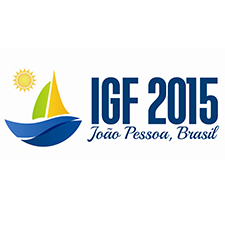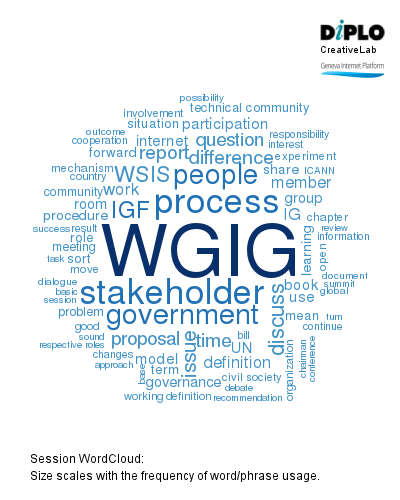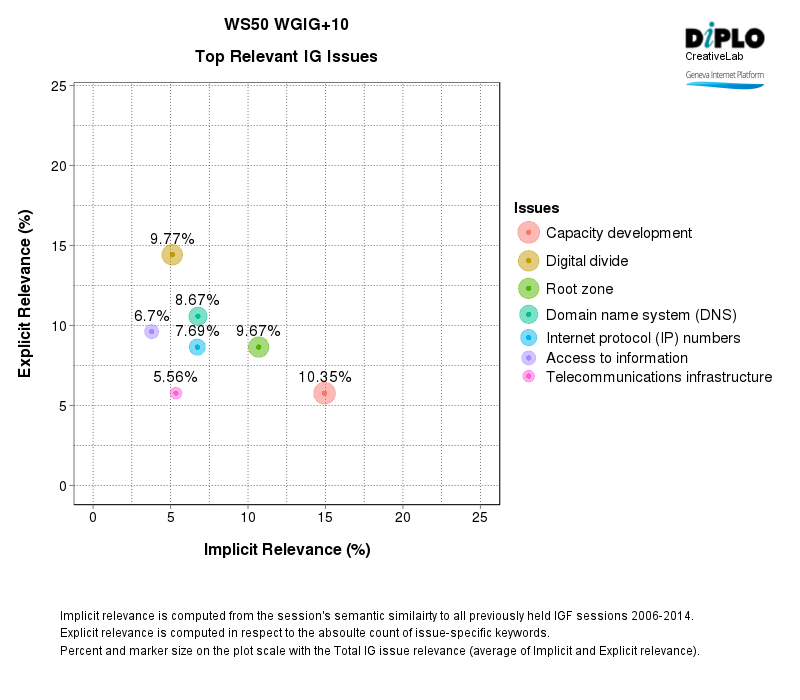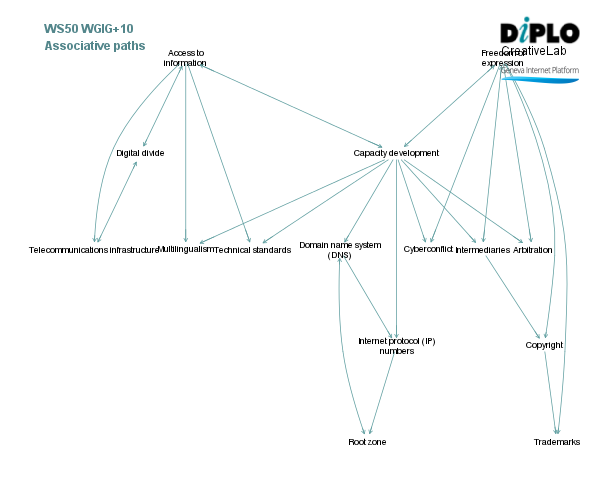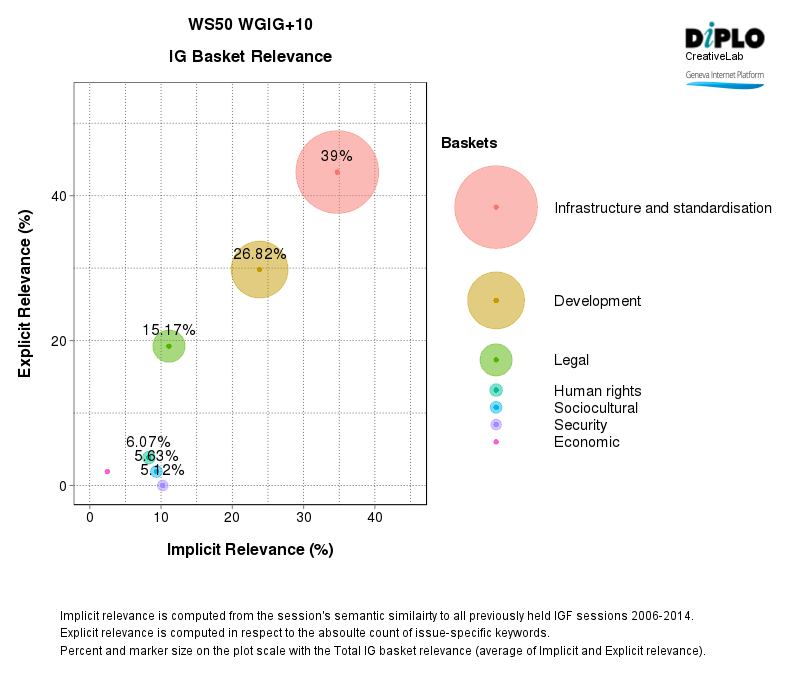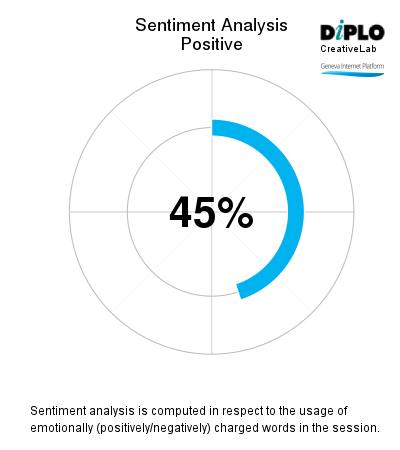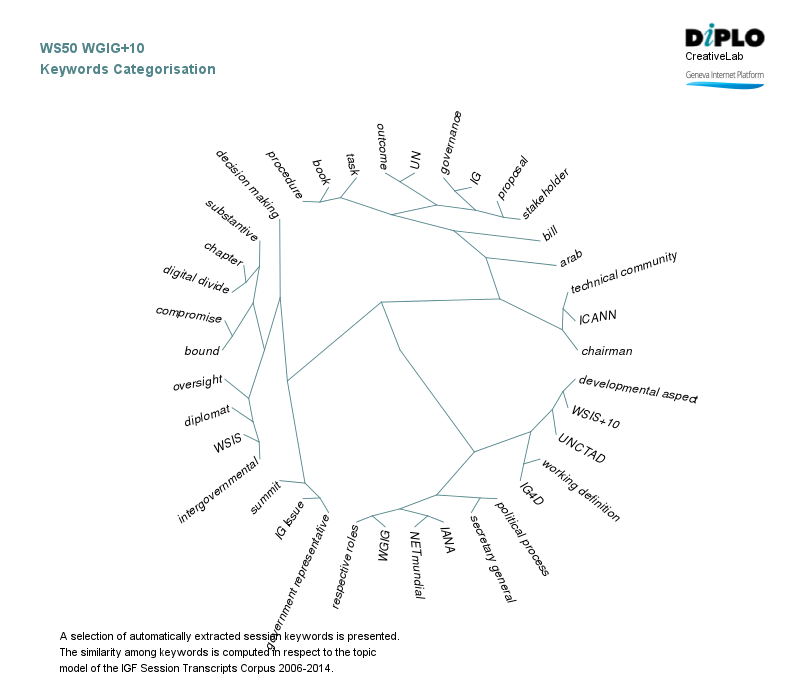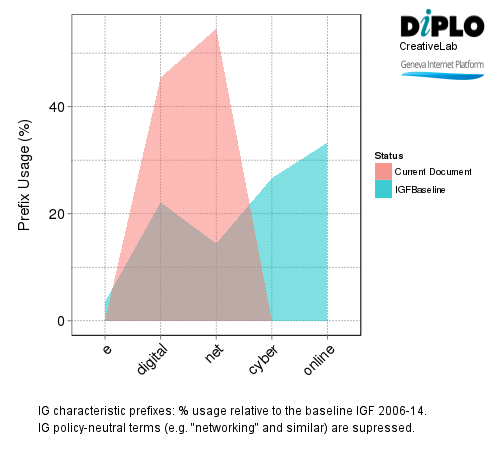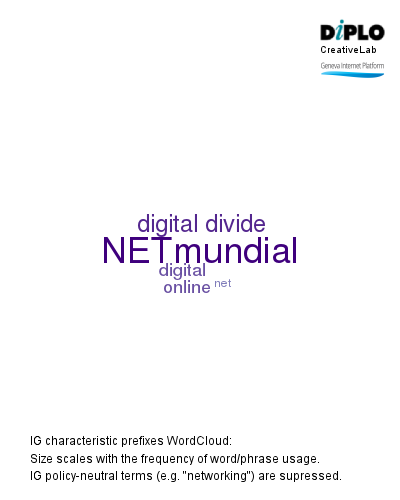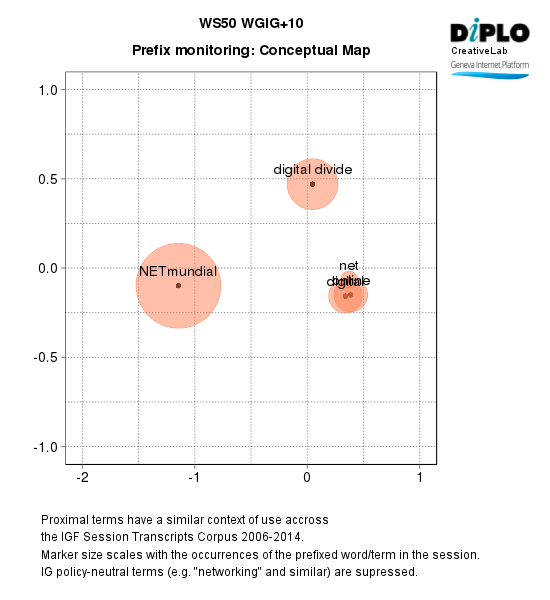WGIG +10
12 Nov 2015 14:00h - 15:30h
Event report
This session set a good start to building relationships across stakeholders by bringing together WGIG members who are still active in the field to reflect on the progress made since the WGIG began 10 years ago.
Different terms were given for the WGIG (Working Group on Internet Governance) such as ‘mother of Internet Governance’, and the ‘eye-opener’.
The panelists gathered in a round table discussion to consider what the working process of the working group has been and what its outcomes have been. WGIG members shared their memories with all participants on these two questions.
WGIG was the first multi-stakeholder consultative body for global issues, which established the working definition of Internet Governance. This definition is still currently employed. On procedural terms it introduced the groundbreaking idea of placing all stakeholders on equal footing.
The creation of the working definition of Internet Governance made its way word by word in the Tunis Agenda. This definition was broadly accepted and it was balanced. A key element to the definition was using the word ‘shared’ – shared norms, principles and decision-making procedures – which effectively introduced a new way of moving forward.
The panel all agreed that the multi-stakeholder approach was open, inclusive and transparent in process. The consequence was that it created trust in the multi-stakeholder experience.
WGIG was not just a report, it was also a process. There were open consultations where people participated, and listened to each other – which was quite unusual for the UN.
WGIG played an important role in promoting collective learning amongst all the participants in terms of how we learned to work together.
WGIG was not the end of the process; it was the start of a new beginning!
By Lianna Galstyan
Session Analytics
Session analytics on Digital Watch are produced from computational text-mining and statistical modeling of the IGF session raw transcripts.
All analytics are produced from DiploFoundation’s Text-Analytical Framework (DTAF).
Related topics
Related event
